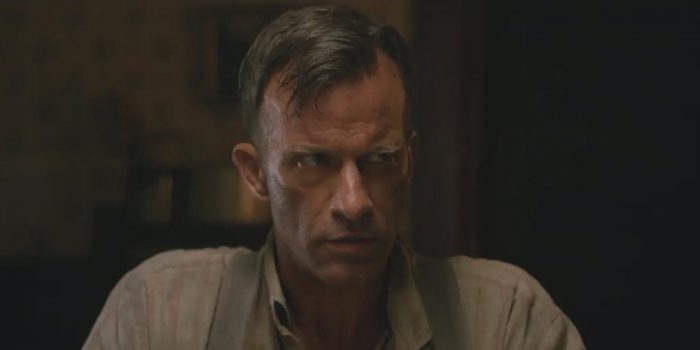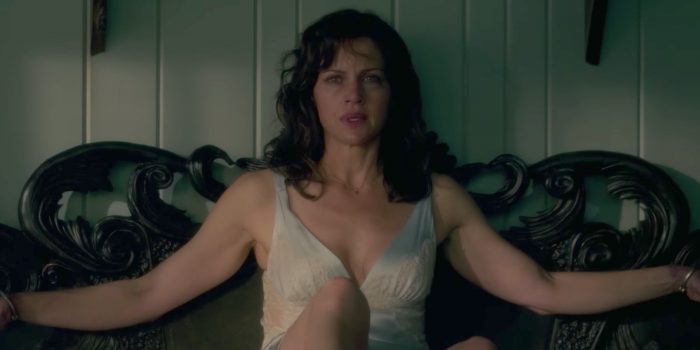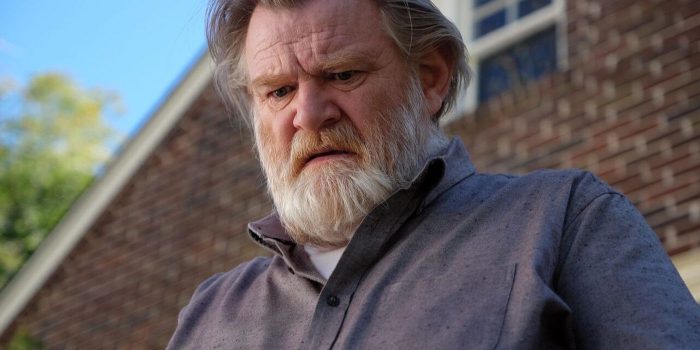
Stephen King recently celebrated his 71st birthday and if you tuned into Castle Rock — Hulu’s streaming television series based on characters and settings from the world of King — you might have been going through withdrawals since the show’s finale. For fans eager to get caught up in the mania of another mystery-driven show like Lost or Twin Peaks, Castle Rock scratched a very specific itch, getting its hooks into Redditors and inspiring articles likening King to the Charles Dickens of the 21st century.
The effect that Castle Rock had on me is that it made me want to go back and rediscover King’s stories across all forms of media, including but not limited to movies. This ranking of the many movies adapted from King’s books is a good guide for those who want to go down that particular rabbit hole; but in the same way that Castle Rock teased the existence of other realities beyond the one its characters inhabited, there’s a wide world of King content out there and it doesn’t look to be letting up its expansion anytime soon.
As it turns out, the Stephen King renaissance extends well beyond movies to a vast multiverse of multimedia, everything from books to audiobooks to comic books and other streaming TV shows and streaming movies. Most of these stories work as standalone narratives but taken as parts of a whole, they also further enrich and enhance each other. Let’s venture off the beaten path of theatrical releases and dive deep into eight other corners of the Stephen King multiverse.

1922
The nature of Netflix is such that as movies go direct to streaming, they arguably drop with less fanfare and are forgotten quicker than if they were theatrically released. Last year, on the heels of It’s box office conquest, 1922 was the second of two new King adaptations that became available on Netflix. You may have seen it slip into the recommendations on your landing page but with the sheer deluge of content vying for a person’s attention at all times, it would be easy for it to get buried or back-burnered on one’s to-view list.
If you haven’t seen 1922, you should rectify that immediately. Forget the disappointing Dark Tower feature film; this one has that beat by a country mile. Adopting a pair of blue jean overalls and a period Nebraska accent, Thomas Jane gives a performance that makes you forget you’re watching Thomas Jane. Ten years prior, Jane had starred in another good King adaptation, The Mist, whose all-timer of an ending wielded hope and fear like twin electrodes in shock therapy for the viewer. On rainy days, my temples still buzz from that movie.
Here, Jane’s face has more of a leathery gauntness to it that makes him look like he walked straight out of The Grapes of Wrath. He’s playing a very different character this time around. Wilfred James is a farmer who conspires to kill his wife so he can keep her land. Doing so puts him in touch with what he calls “the conniving man,” that darkness that dwells in the human heart and makes people do bad things. The flies of Jean-Paul Sartre have nothing on the rats that torment Wilf.
Some of the best King adaptations are based on novellas. 1922 is adapted from one in his 2010 collection Full Dark, No Stars. This is Stephen King by way of There Will Be Blood. It’s not just the gothic title card lettering that brings that lofty comparison to mind, either. At times, the dissonant strings and percussion in the score by Mike Patton of Faith No More make the haunted soundscape of 1922 sound like it’s comprised of lost tracks from Johnny Greenwood’s There Will Be Blood score. We could probably devote another whole section here just to film scores that provide good background music for King fans, such as this one and Thomas Newman’s score for The Shawshank Redemption.

Gerald’s Game
Also available on Netflix is Gerald’s Game, where it’s the wife this time who is the main character, not the husband. Jessie Burlingame (Carla Gugino), actually seems leery of her husband, Gerald (Bruce Greenwood), even before he handcuffs her to the bed in a secluded lake house. An attempt to spice up their love life with bondage quickly fails and Jessie is left trapped in her nightgown when Gerald suddenly drops dead of a heart attack at the worst possible time. This sets into motion the movie’s game of psychological horror.
Gerald’s Game unrolls its nightmare scenario like a stage play, putting Jessie through the wringer physically, mentally, and emotionally as she struggles to survive. Gerald is dead but that doesn’t stop him (or another version of Jessie herself) from appearing to Jessie in visions. There’s also the terrifying figure of the “Moonlight Man,” a monster who may or may not be under Jessie’s bed and in the shadowy corners of her room. Speaking in a low whisper, Jessie’s hallucination of Gerald tells her:
“People are safe from ghouls and ghosts … in the daylight and they’re usually safe from them at night, if they’re with others. But a person alone in the dark, women alone in the dark, are like open doors … and if they scream for help, who knows what might answer.”
Like 1922, which is set in the same town where Mother Abigail lived in The Stand, Gerald’s Game overlaps with other King works, alluding most strongly to Dolores Claiborne (there’s a flashback scene that’s set during the same total solar eclipse), but also working in references to the likes of The Dark Tower, Cujo, and Bag of Bones. “All things serve the Beam.” There are even some Easter eggs to director Mike Flanagan’s other horror movies like Oculus and Hush. King once called himself “the literary equivalent of a Big Mac and fries,” and Gerald’s Game leans into the luridness that has left some of his stories dismissed as trashy, junk-food writing. By the end, however, it’s clear that this adaptation strives toward a higher meaning.

Mr. Mercedes
Mr. Mercedes is a show that might not have registered as a blip on everyone’s radar. Showrunner David E. Kelley (of Ally McBeal fame) received more attention for his HBO series Big Little Lies last year than he did for this King adaptation. AT&T has been trying to get in the game with its own original programming and to that end, Mr. Mercedes premiered last year on the Audience Network, which is available on DirecTV, DirecTV Now, and AT&T U-verse. The show is currently in the middle of its second season and the first couple episodes of both seasons are available to watch for free on the official series website. Many episodes are helmed by frequent Lost director Jack Bender.
With his bushy red beard from 28 Days Later now going white, Brendan Gleeson commands a sturdy presence as retired police detective Bill Hodges. He’s the kind of disheveled curmudgeon who is liable to drive home the message of, “Get off my lawn,” by storming out of his house with a handgun. The supporting cast of Mr. Mercedes is made up of familiar faces (Mary-Louise Parker and numerous recognizable character actors) and Gleeson has good chemistry with all of them.
Harry Treadaway, who played Victor Frankenstein on Penny Dreadful, now inhabits the role of Brady Hartsfield, a kind of 21st-century Norman Bates who lives in his mother’s basement, works at an electronics store, and moonlights as a Mercedes killer. Drawn out over ten episodes, Mr. Mercedes unfolds as more of a character study that seems content to keep itself in cruise control while occasionally putting the pedal to the medal in scenes of horrific violence, like the inciting incident where the titular car plows into a crowd of people at a job fair.
Continue Reading What to Watch After Castle Rock >>
The post 8 Pockets of the Stephen King Multiverse to Explore After ‘Castle Rock’, from Netflix and Hulu to Books and More appeared first on /Film.
from /Film https://ift.tt/2QVZL8J

0 Comments